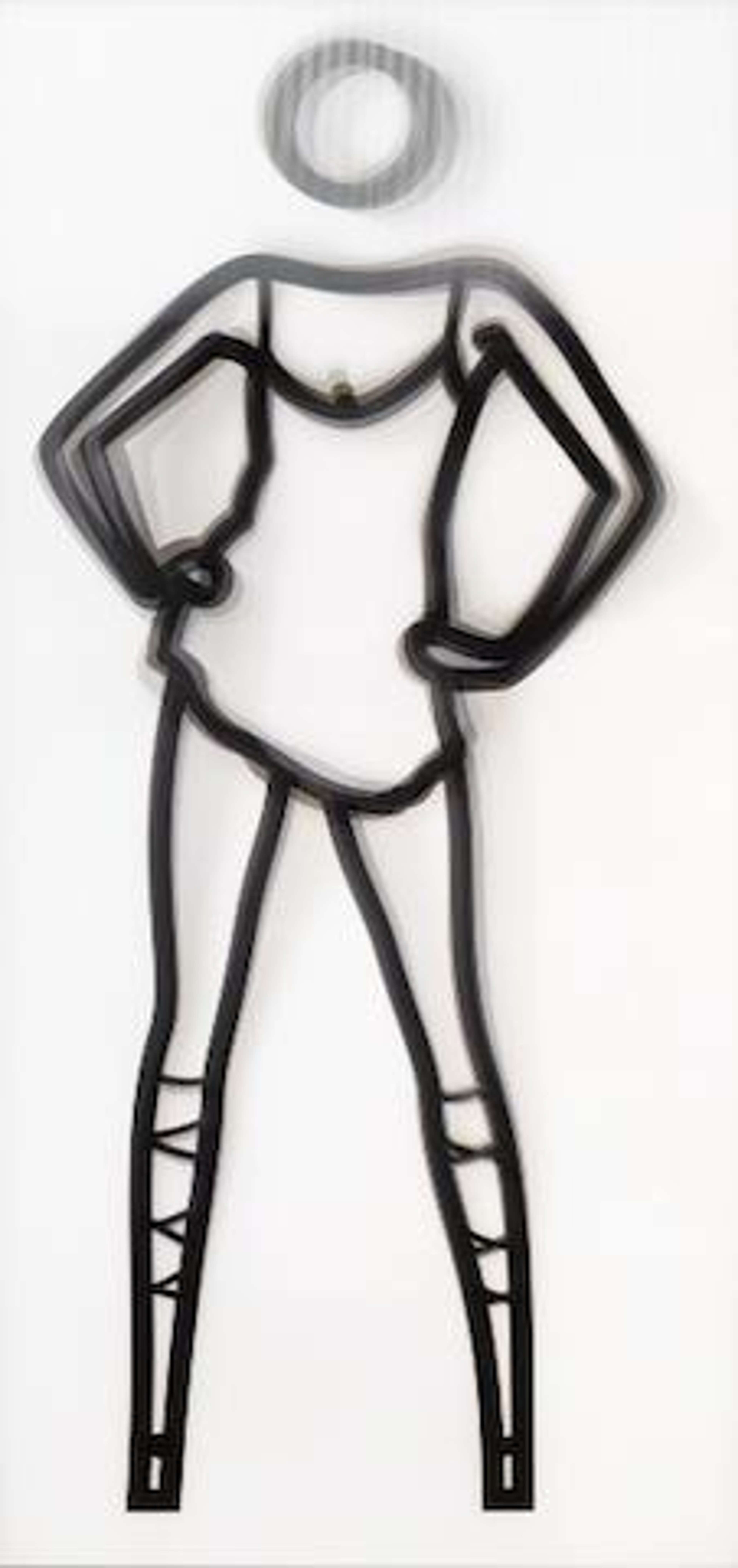
Shahnoza Dancing In A White Dress
Shahnoza Dancing In A White Dress
Signed Print
Julian Opie
£13,500-£20,000
$27,000-$40,000 Value Indicator
$25,000-$35,000 Value Indicator
¥130,000-¥190,000 Value Indicator
€15,000-€23,000 Value Indicator
$140,000-$210,000 Value Indicator
¥2,800,000-¥4,150,000 Value Indicator
$18,000-$27,000 Value Indicator
There aren't enough data points on this work for a comprehensive result. Please speak to a specialist by making an enquiry.
102 x 44cm, Edition of 45, Digital Print
Auction Results

Track auction value trend
Meaning & Analysis
Shahnoza Dancing In A White Dress is a digital print released in 2007 in an edition of 45 by British Pop artist Julian Opie. The image depicts a pole dancer, Shahnoza, dancing in a short slip dress and lace up heels. The rhythm of her movement is captured in the blurring of the edges of her figure. Shahnoza has been the subject of numerous artworks by opie, reflecting his desire to work on one idea across a number of different media and compositions.
Shahnoza’s head is represented by a blank circle, without a neck and her feet have been cut off; the suggestion of heels remains as material laces up her shins. Her pose remains highly realistic however, due to Opie’s use of photography in the initial stages to capture his subjects, before distilling their main features. Opie’s images of people engage ideas that have long occupied art history by questioning what intrinsic elements are necessary in order to convey a narrative or a person’s character.
